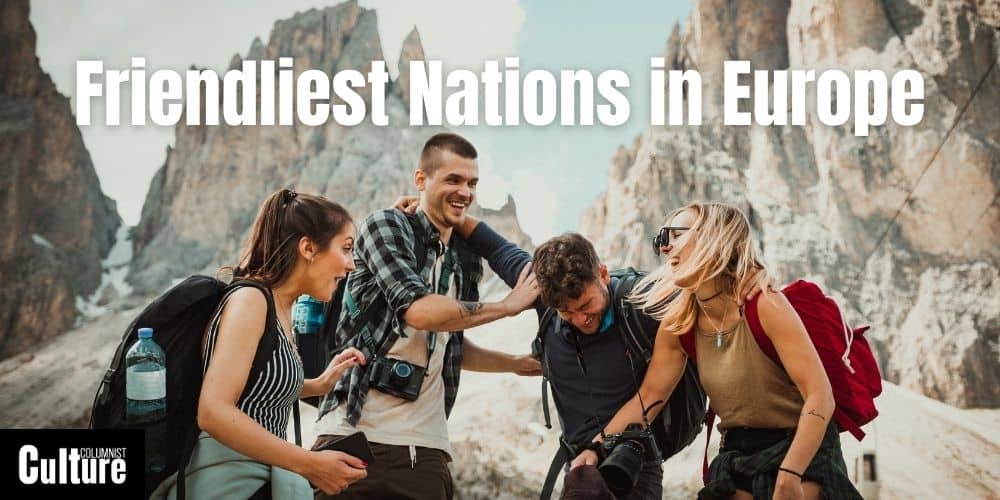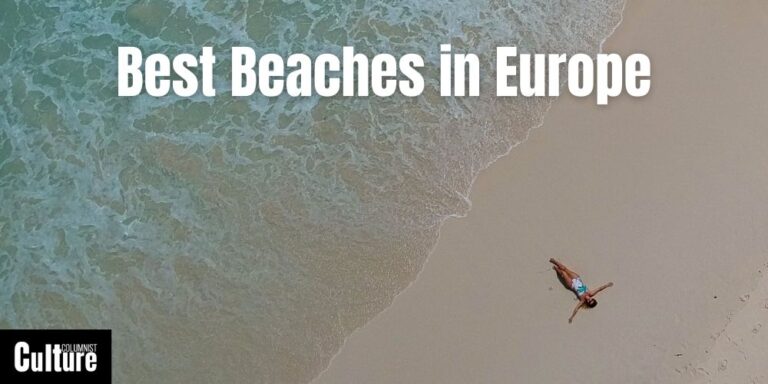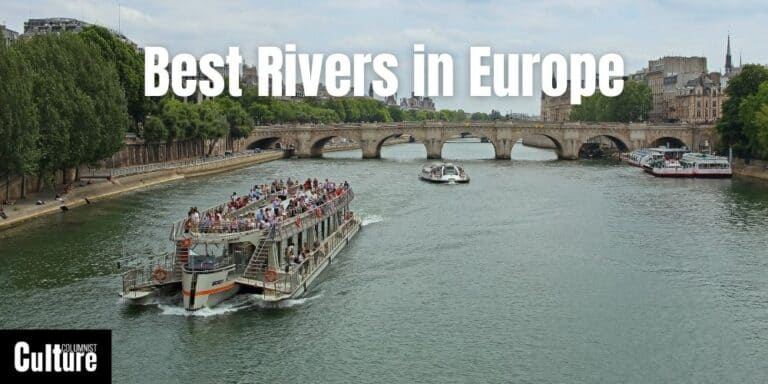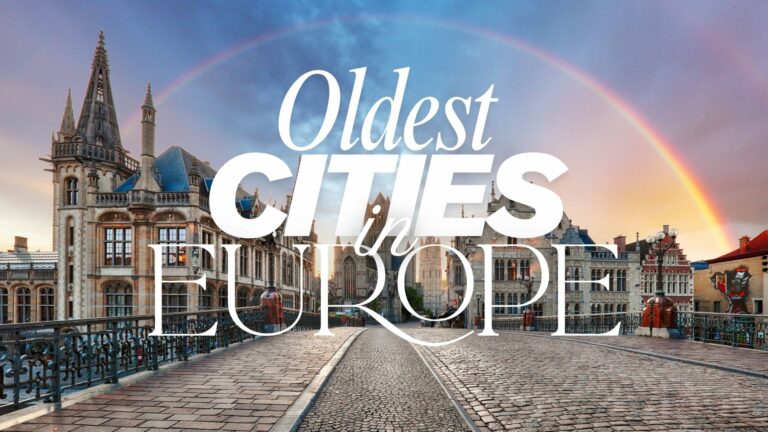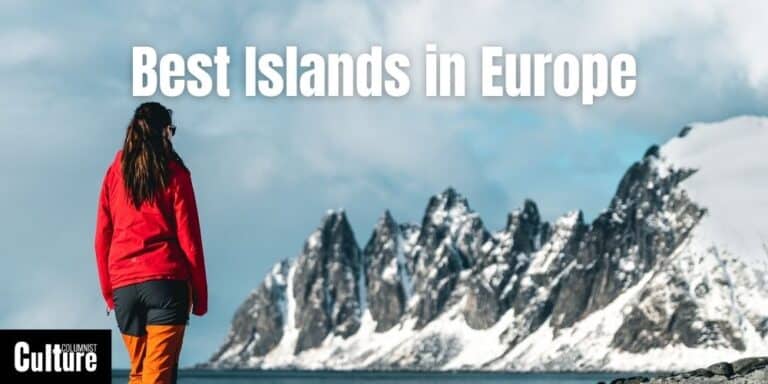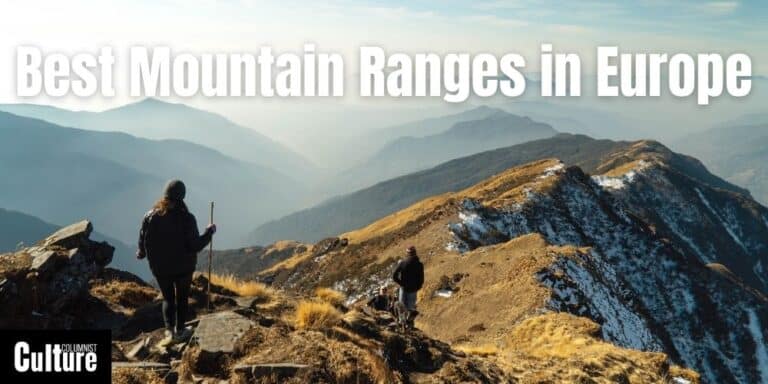The Friendliest Nations You Can Visit In Europe
Europe is a melting pot of cultures, languages, and traditions. One of the most memorable aspects of any journey across this diverse continent is the people you meet along the way. But where in Europe are you most likely to encounter the friendliest locals?
It’s one thing to visit scenic landscapes and historic landmarks; it’s another to interact with welcoming locals who can make your trip truly unforgettable. Are you looking for destinations where people are known for their hospitality and openness?
The level of friendliness can be measured in various ways—perhaps it’s the readiness to help tourists, a community’s general openness to strangers, or the willingness to engage in conversation. Language barriers, local customs, and cultural norms also play a role in how ‘friendly’ a destination may feel. Some countries have a more outgoing culture, while others might be friendly but reserved.
Whether you’re a solo traveler keen on making new friends, a couple looking for a romantic yet sociable getaway, or a family hoping to expose their children to positive international environments, the level of friendliness of the people you meet can significantly influence your overall experience.
Keeping these factors in mind, below is a list of European nations known for their friendly locals. Of course, these are general observations based on anecdotal evidence and there are always exceptions to the rule, but this guide aims to help you choose a destination where the people you meet could very well become the highlight of your trip.
Ireland
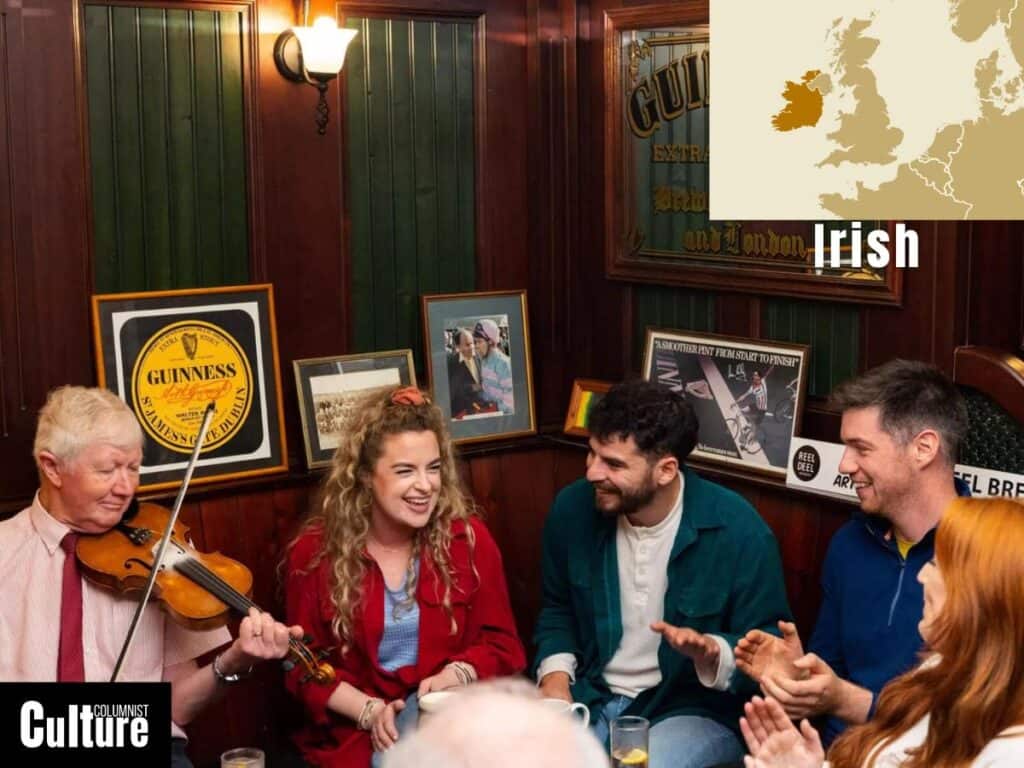
Ireland is often referred to as “The Land of a Thousand Welcomes” due to its cherished heritage of hospitality and its own brand of hospitality, “Céad Míle Fáilte,” which literally means “a hundred thousand welcomes” in Irish.
For travelers interested in meeting locals, visiting an Irish pub is almost a rite of passage. They serve as social hubs where there is often live music and dancing, particularly in the west of Ireland. Community events and local festivals, like the Fleadh Ceoil or St. Patrick’s Day, offer opportunities for meaningful interaction.
Learning a few phrases in Irish can be a great icebreaker, although most Irish people speak English fluently. “Sláinte” (pronounced “slawn-cha”) is a commonly used toast that means “health,” and saying “please” (“le do thoil”) and “thank you” (“go raibh maith agat”) can go a long way in building rapport and fostering warm relations.
Portugal
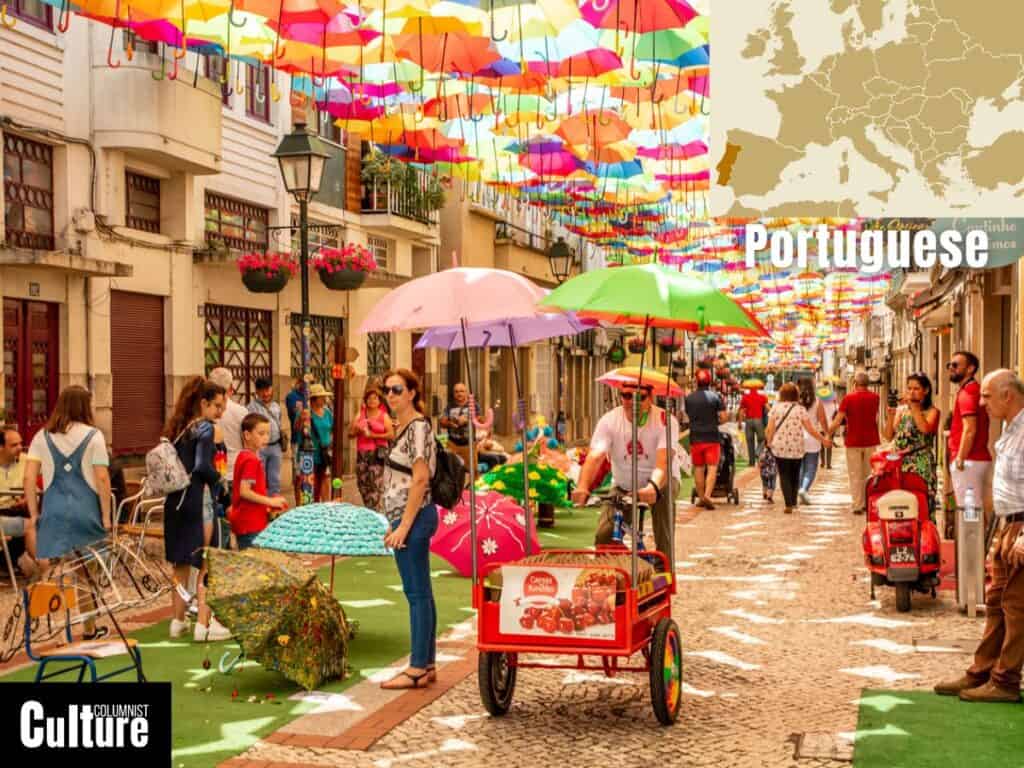
Portugal, located on the Iberian Peninsula in southwest Europe, has long been a nation focused on exploration and open-mindedness. It’s common to greet with a kiss on both cheeks, even upon first meeting. The Portuguese term “convívio” captures the essence of this spirit, representing a genuine joy in spending time with others, be it family or friends.
For those interested in meeting locals, consider visiting traditional “tascas” or neighborhood markets. Fado music venues in Lisbon and Porto, and “festas,” where villages and towns have their own traditional festival to celebrate their history, religion, and culture, offer another authentic opportunity where tourists can meet Portuguese people.
Learning a few basic phrases in Portuguese can be wise. A simple “Obrigado” (thank you) for men and “Obrigada” for women can be particularly useful. Understanding some local gestures, such as touching the thumb and fingertips together to form a circle (meaning “okay” or “perfect”), can also help foster a warm environment.
Scotland
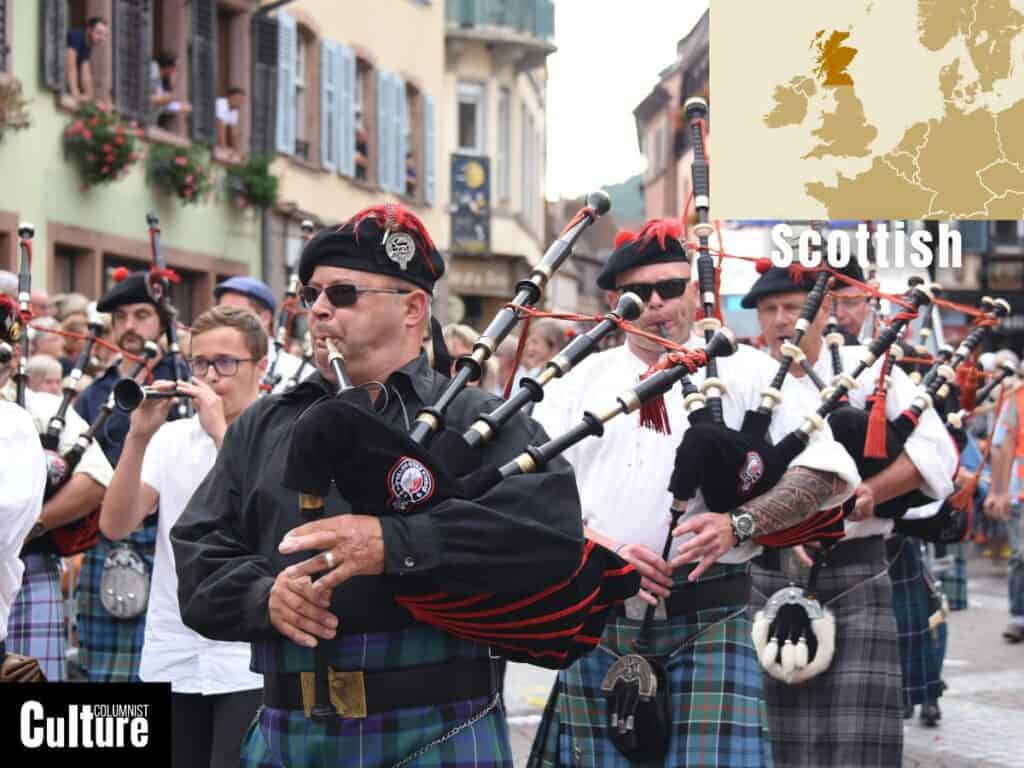
Scotland, a country that forms part of the United Kingdom, is located to the north of England. Scottish culture places high importance on community and collective welfare, as seen in values like fairness, equality, and hospitality. The concept of “ceilidh,” a social event with music and dance, epitomizes this communal spirit.
Visitors can experience Scottish friendliness firsthand at local pubs, Highland games, or Ceilidh events, which are often open to the public and very welcoming to tourists. Visiting local markets, particularly farmers’ markets, is another way to meaningfully engage with locals.
Some phrases in Scots or Gaelic can enhance your experience, even though English is widely spoken. “Slàinte Mhath” (pronounced slan-cha-wa), which is Gaelic for “good health,” is often heard during toasts. To show appreciation, you can use the phrase “Tapadh leat” (pronounced top-a-lat) for one person or “Tapadh leibh” (pronounced top-a-lav) for more than one person.
Iceland
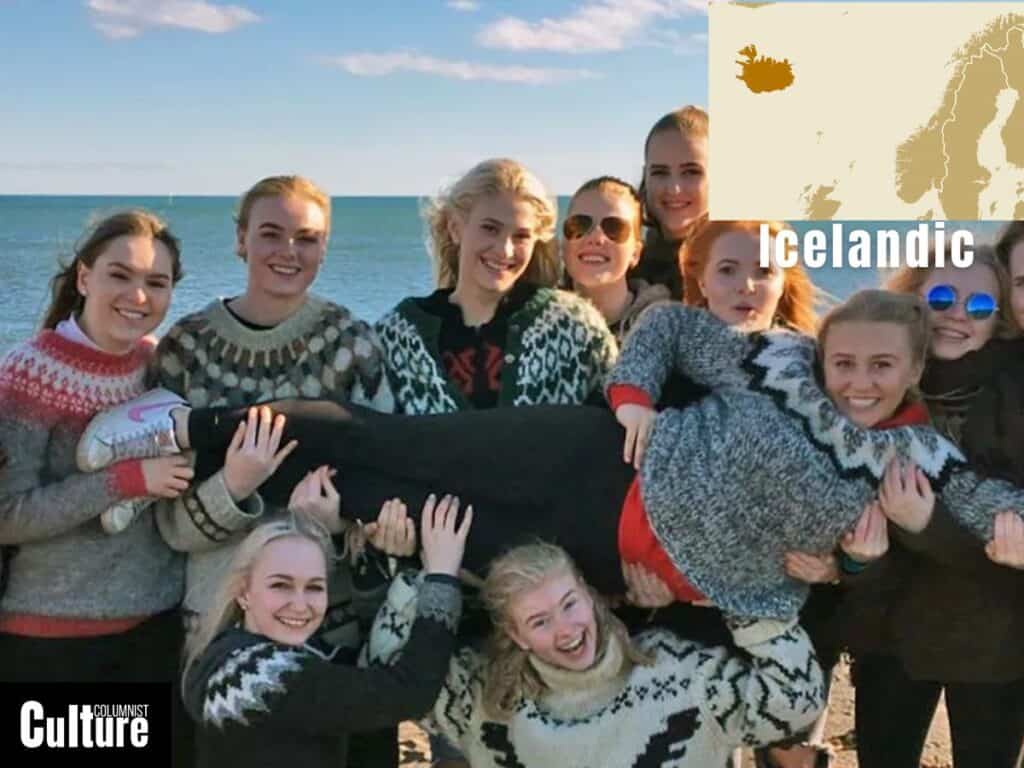
Iceland is a Nordic island country located in the North Atlantic Ocean. The country’s relatively small population and historical isolation have fostered a tight-knit community spirit, which extends to visitors as well. Greetings often include a handshake and eye contact, signaling openness and sincerity.
Community festivals, outdoor activities, and local hot springs and thermal pools are venues where visitors can experience authentic Icelandic friendliness. The pools, in particular, are social hubs where people go to relax and catch up. Farmers’ markets and small cafés are also common spaces for genuine interactions.
A few phrases in Icelandic, such as “Góðan dag” (good day) and “Takk” (thank you), can go a long way in making connections. While Icelanders are fluent in English, showing interest in their language is usually appreciated. Also, Iceland has a strong culture of environmental responsibility; respecting natural landscapes and local customs is not just polite but expected.
Denmark
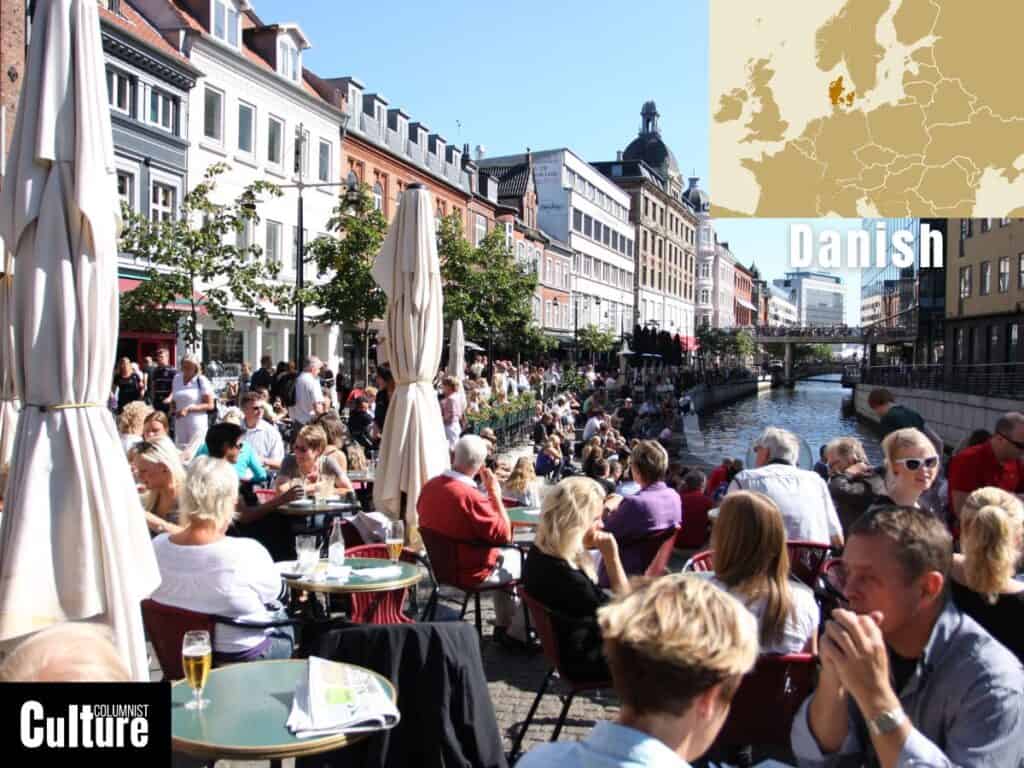
Denmark is a Scandinavian country in Northern Europe, renowned for its high standard of living and strong sense of community. The country frequently ranks high in happiness and quality of life surveys, while greetings are usually casual, often involving a light hug.
Danish culture values ‘hygge,’ a unique term that encompasses comfort, coziness, and togetherness. Local cafés are ideal for breaking the ice with local Danes over a beer, while farmers’ markets and community events can also put you in touch with more locals. Cycling is a popular Danish activity; joining a local cycling group can also be a way to integrate and experience Danish hospitality.
Learning a few basic phrases in Danish like “Hej” (Hello) or “Tak” (Thank you) can be endearing, although most Danes speak fluent English. When invited to someone’s home, it is customary to bring a small gift as a gesture of appreciation.
The Netherlands
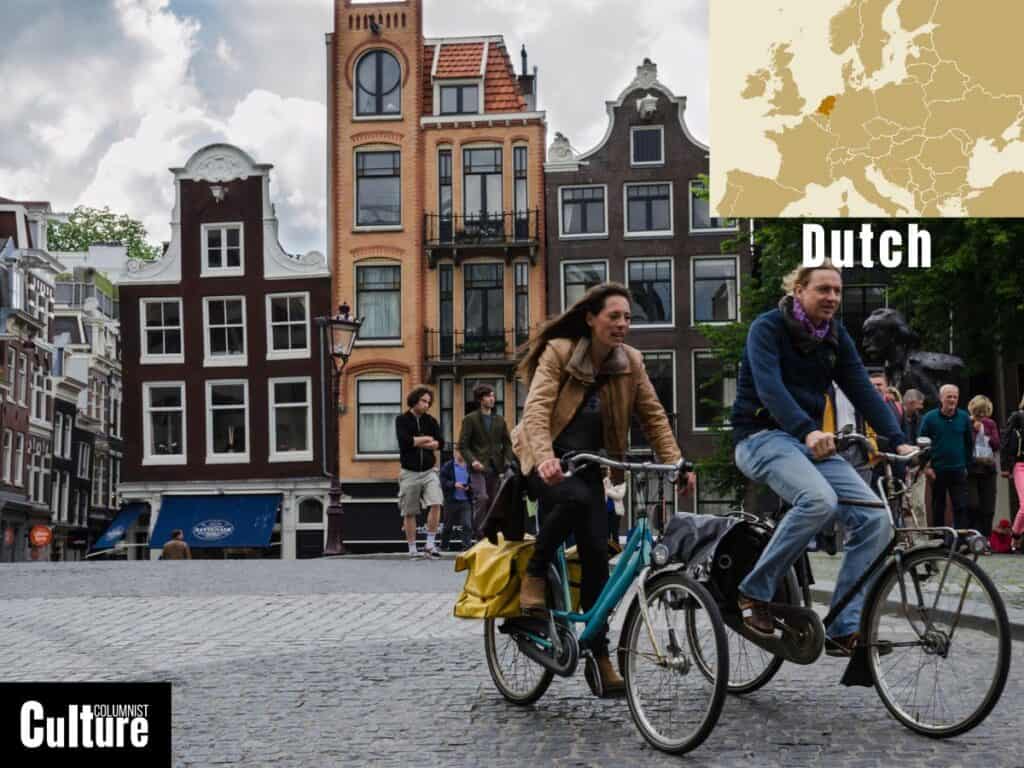
The Netherlands is a country located in Western Europe known for its flat landscape, intricate canal systems, fields of tulips and open-minded people. Common greetings include a handshake for acquaintances and three cheek kisses for friends and family.
Local markets, public squares, and “bruin cafés” (traditional Dutch pubs) are excellent places to interact with locals. The Dutch are enthusiastic about cycling; renting a bike and joining locals for a ride is another way to make friends. The country’s many public parks also serve as social hubs where picnics and casual sports activities occur, while King’s Day offers a friendly atmosphere where locals celebrate outside on the streets and canals.
Learning a few basic Dutch phrases like “Hallo” (Hello), “Dank je” (Thank you), or “Alsjeblieft” (Please) can make a positive impression, although English is widely spoken. Finally, when splitting bills at restaurants or cafés, it is common to pay exactly for what you ordered rather than one person paying the cost for the entire group, a practice known as “going Dutch.”
Norway
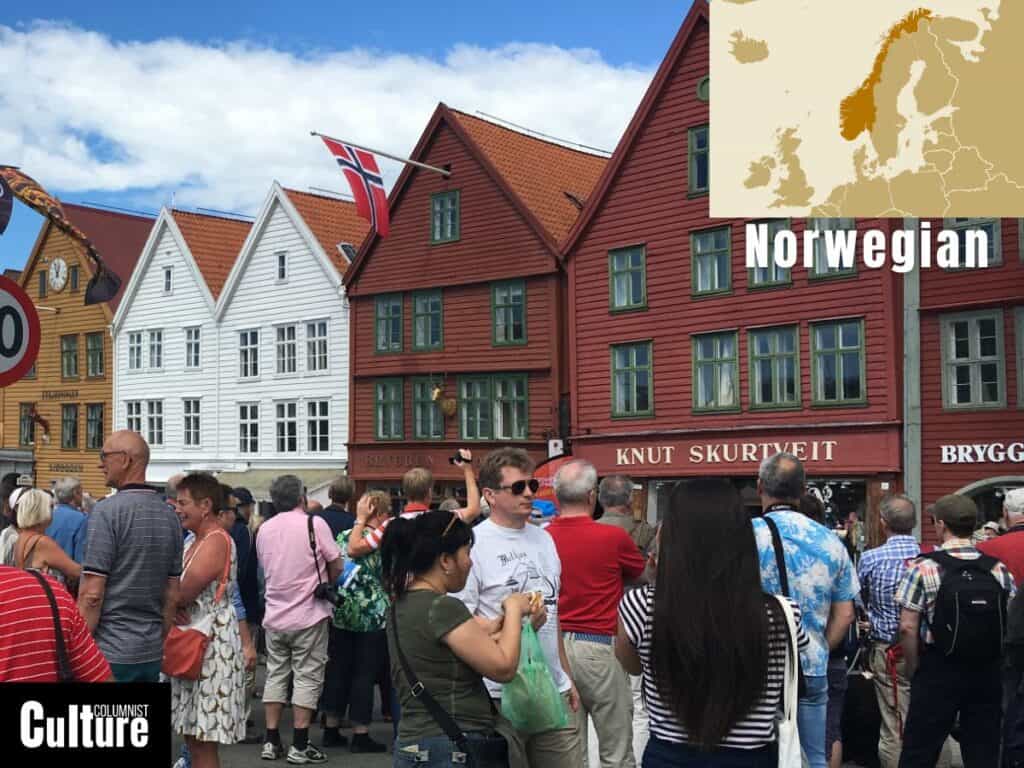
Norway is a Scandinavian country located in northern Europe. Known for its stunning fjords, high standard of living, and strong sense of community, the Norwegians have a reputation for being reserved but are generally warm and friendly once a rapport has been established. A common greeting is a firm handshake, and close friends and family may exchange hugs.
Outdoor activities like hiking, skiing, or fishing offer great opportunities to interact with locals, as these are national pastimes. Cafes and pubs, particularly in smaller towns, are also good venues for meeting Norwegians. Participation in communal activities, such as town festivals or local sporting events, also allows for meaningful engagement.
Learning a few phrases in Norwegian like “Hei” (Hi), “Takk” (Thank you), and “Vær så snill” (Please) can be endearing, although most Norwegians speak English proficiently. It is polite to remove your shoes when entering someone’s home and to say “takk for maten” (thanks for the food) after a meal.
Spain
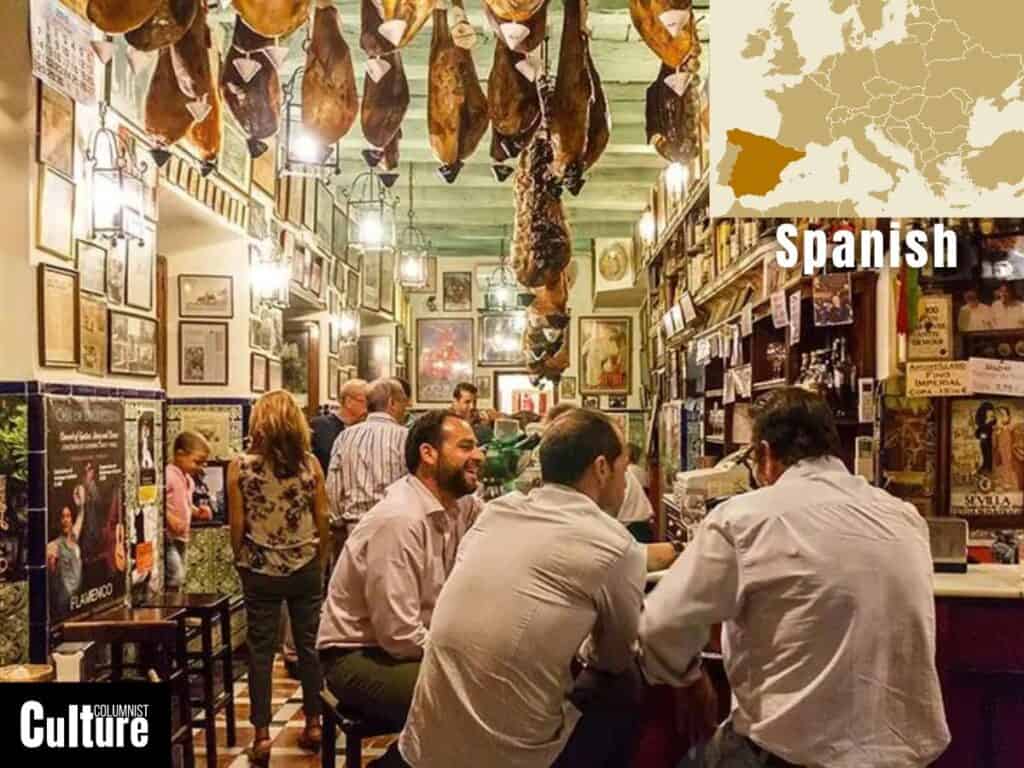
Spain is a country located in southwestern Europe, sharing the Iberian Peninsula with Portugal. Known for its rich history, diverse culture, and warm hospitality, Spain has garnered a reputation for its friendly and welcoming people. It is customary to greet someone with kisses on both cheeks in a social setting.
You can typically meet Spanish people at local tapas bars, with most large cities in the country having a vibrant street and nightlife. Sports events and festivals, particularly bullfighting tournaments and football matches, are also highly social events and can offer a glimpse into local camaraderie.
Basic phrases in Spanish such as “Hola” (Hello), “Gracias” (Thank you), and “Por favor” (Please) are often appreciated, although many Spaniards can communicate in English. Being punctual is generally not as important as in some other cultures, and meal times usually occur later than in many other European countries.
Italy
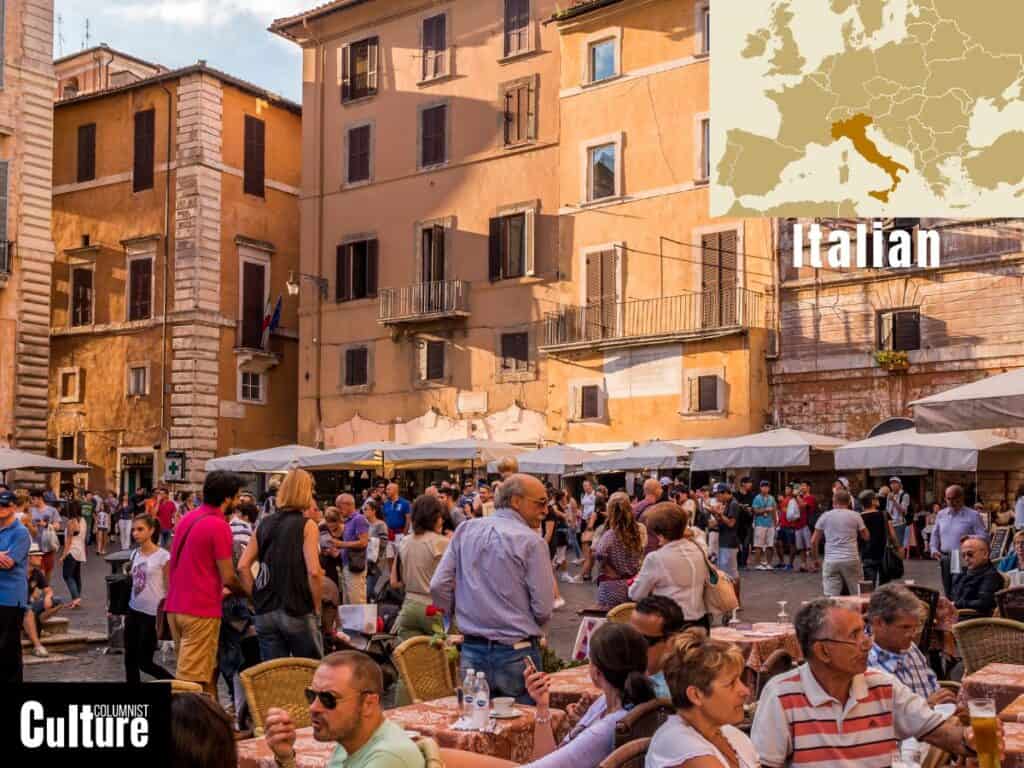
Italy is a country located in southern Europe, known for its rich history and contributions to art, music, and cuisine. The Italian people have a reputation for being warm and friendly and placing a high value on family, friendship, and community. These values are evident in how they greet friends and family with a customary double-cheek kiss.
Italian culture places a large emphasis on communal dining and sharing meals. Piazzas, or public squares, are central to Italian social life and provide an excellent opportunity for visitors to interact with locals in a natural way. Traditional Italian cafes, markets and local festivals also offer opportunities for genuine interactions.
Common phrases in Italian such as “Ciao” (Hello/Goodbye), “Grazie” (Thank you), and “Prego” (You’re welcome) are appreciated, although many Italians speak English, particularly in larger cities and tourist areas. Italians generally greet each other with a kiss on both cheeks, starting with the left.
Greece
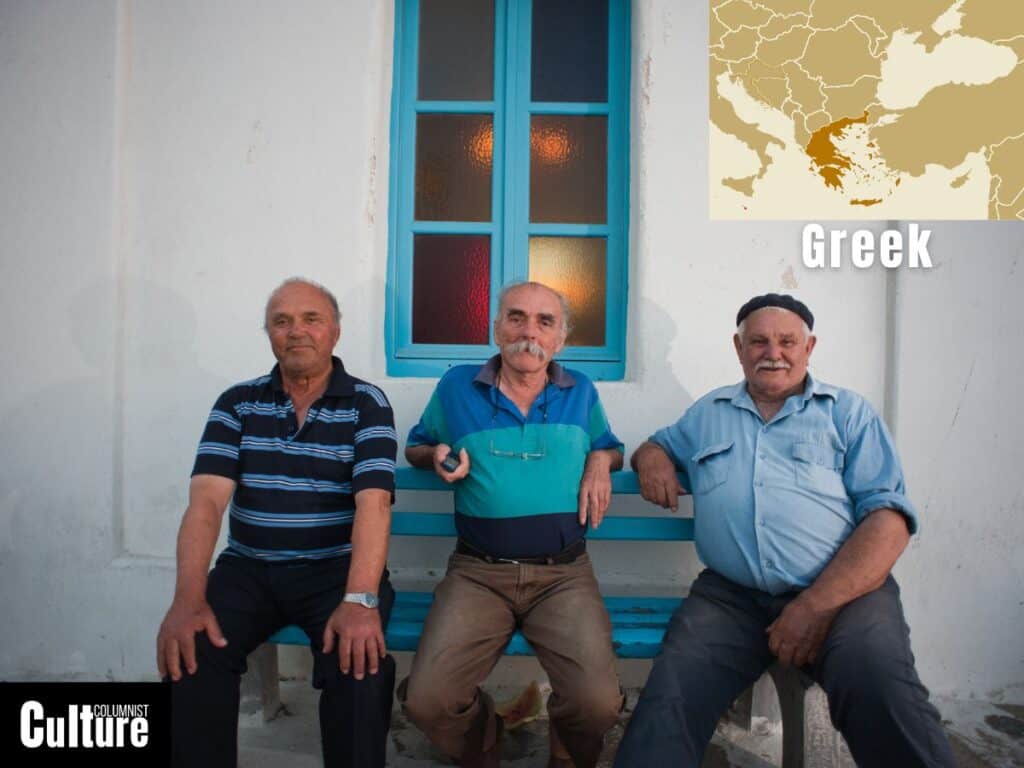
Greece is a southeastern European country known for its ancient history and vibrant culture. The concept of “philoxenia,” or love for strangers, is deeply ingrained in Greek culture, likely originating from the country’s ancient tradition of hospitality.
The Greek societal values of community, family, and hospitality strongly contribute to the friendly nature of its people. One common custom is the offering of a small treat, like a sweet or a glass of water, to guests, even in commercial settings like shops. Tavernas and cafes are social hubs where visitors can easily interact with locals. Many Greek towns and islands have community festivals, especially in the summer, that welcome visitor participation.
Basic Greek phrases such as “Kalimera” (good morning), “Efharisto” (thank you), and “Parakalo” (Please/You’re welcome) are commonly used and appreciated. While tipping is not mandatory in Greece, it is customary to leave loose change or round up the bill in cafes and restaurants to show appreciation for good service.

